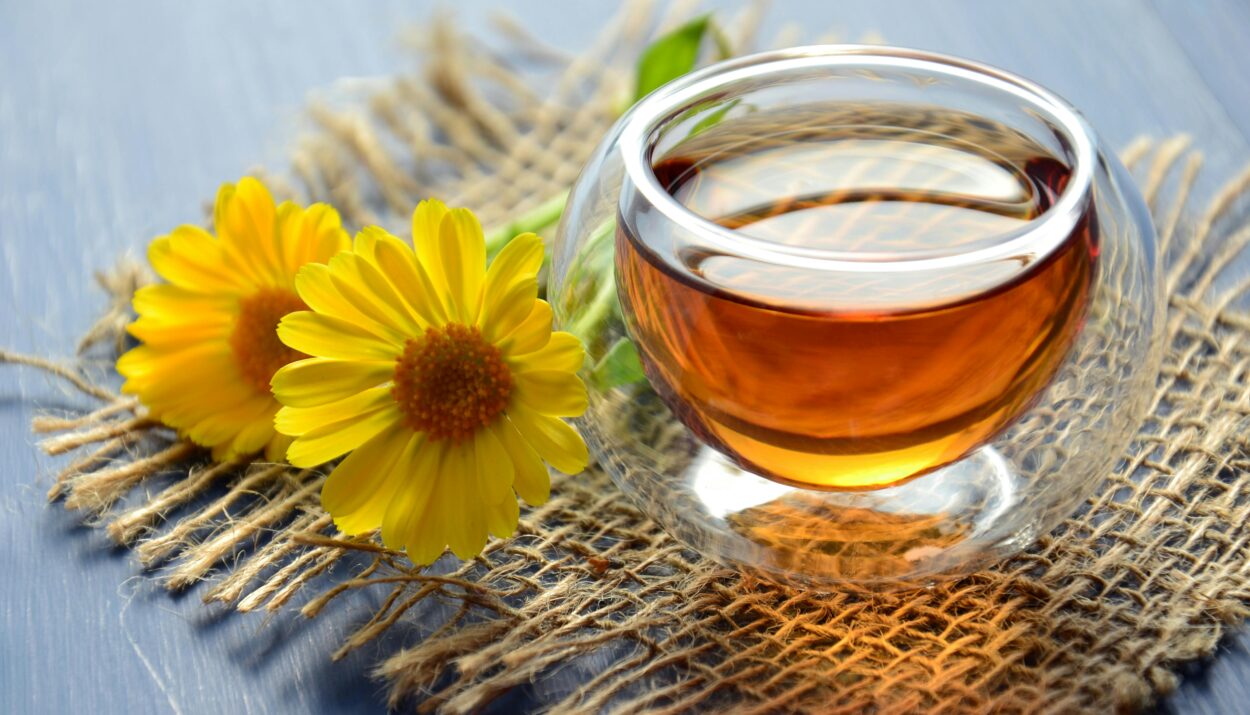There’s something incredibly soothing about sipping a warm cup of herbal tea. As a mother and someone passionate about natural wellness, herbal teas have become a part of my daily rhythm. Whether it’s for relaxation, digestion, or immune support, these natural brews offer gentle yet powerful benefits. In this post, I’m sharing my absolute favorite herbal teas and how each one has supported my well-being.
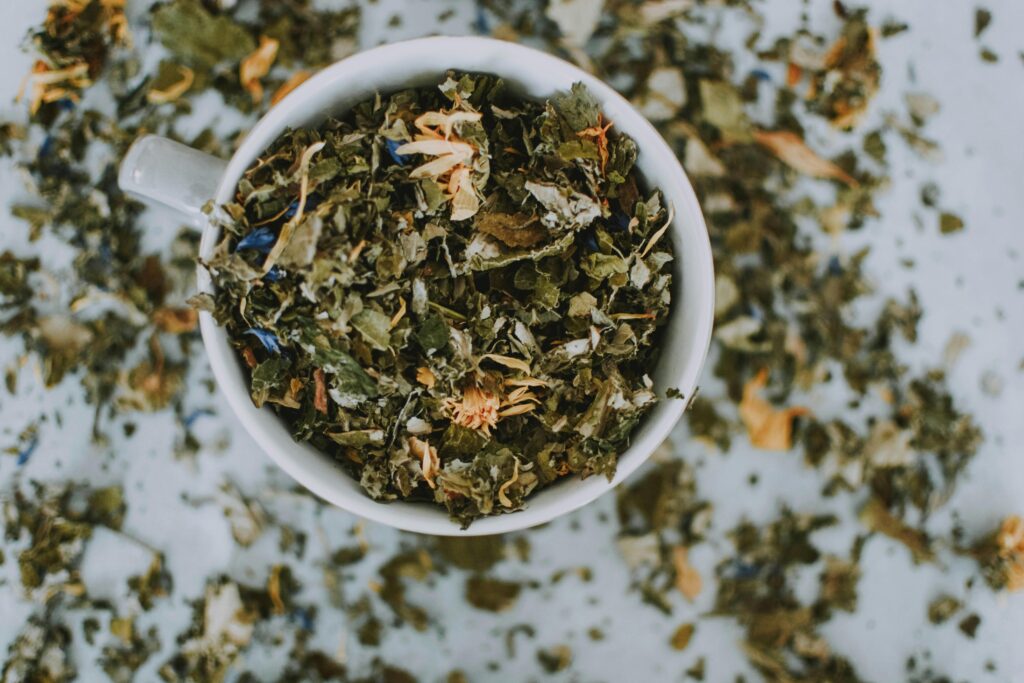
Chamomile Tea – A Natural Way to Relax and Sleep Better
Chamomile tea is one of the most well-known herbal teas, and for good reason. It’s made from the dried flowers of the chamomile plant and has a light, floral flavor that instantly soothes the senses.
Health Benefits:
- Helps promote restful sleep
- Calms the nervous system
- Relieves mild anxiety and stress
- Soothes an upset stomach
- Reduces menstrual pain
How I Use It:
I usually drink chamomile tea about 30 minutes before bedtime. It has become a peaceful part of my nightly wind-down routine.
Peppermint Tea – A Refreshing Boost for Digestion and Energy
Peppermint tea is refreshing, uplifting, and cooling. It’s one of the most effective teas I turn to when I experience bloating or sluggish digestion.
Health Benefits:
- Eases bloating and digestive discomfort
- Supports energy levels and focus
- Provides relief from headaches
- Clears nasal congestion
- Helps reduce nausea
How I Use It:
I like sipping peppermint tea after lunch. It helps me stay alert while also preventing post-meal bloating.
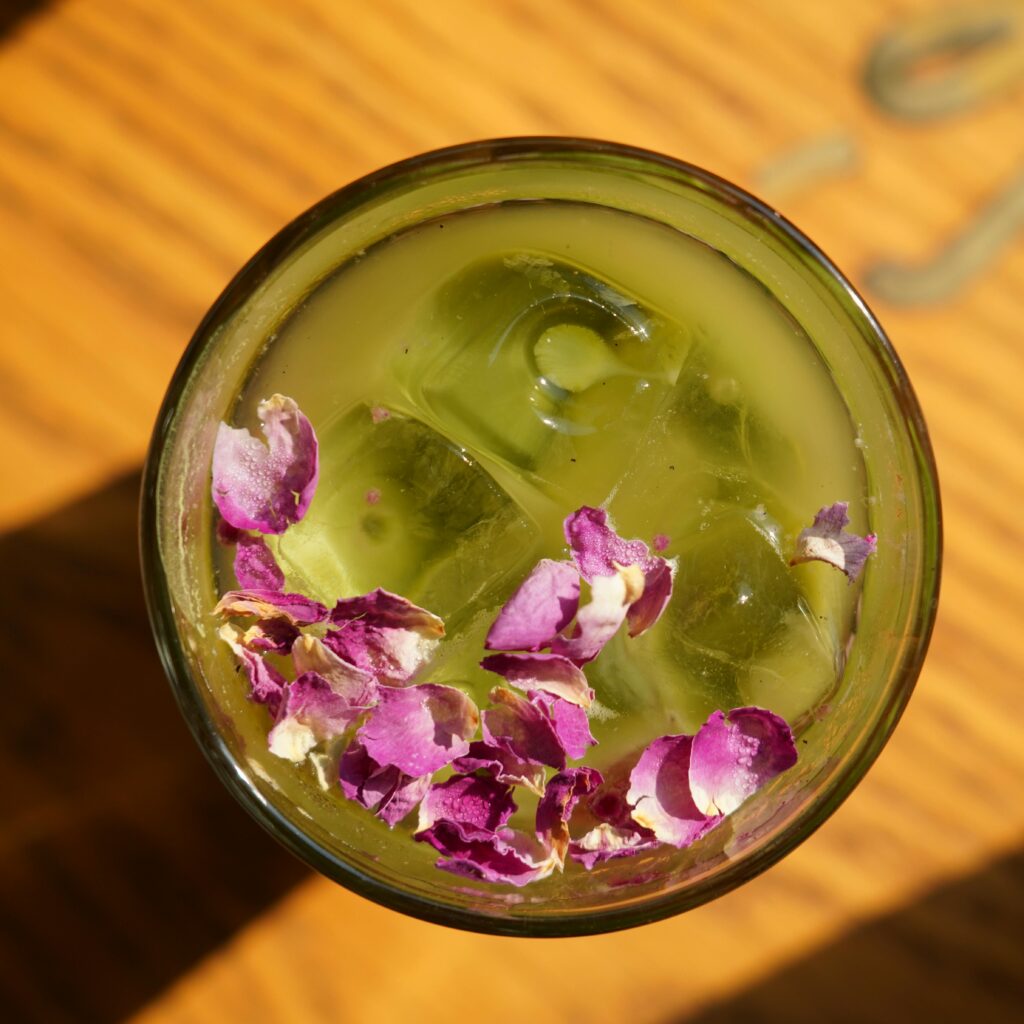
Ginger Tea – A Warming Tea for Immunity and Inflammation
Ginger tea has a spicy and invigorating flavor. It’s my top choice during the colder months or when I feel under the weather.
Health Benefits:
- Strengthens the immune system
- Fights inflammation in the body
- Soothes sore throat and cough
- Eases nausea and motion sickness
- Promotes healthy circulation
How I Use It:
I drink ginger tea first thing in the morning or during flu season. I often add lemon and honey for added benefits and taste.
Tulsi (Holy Basil) Tea – A Powerful Stress-Relieving Adaptogen
Tulsi, also called Holy Basil, is revered in Ayurvedic medicine for its adaptogenic qualities. Its tea has a slightly spicy, earthy flavor and is deeply calming.
Health Benefits:
- Lowers cortisol levels and stress
- Supports hormonal balance
- Enhances focus and mental clarity
- Provides detoxification support
- Boosts the immune system
How I Use It:
I drink tulsi tea in the evening, especially after emotionally taxing days or during hormonal shifts like PMS.

Hibiscus Tea – A Floral Tea for Heart Health and Radiant Skin
Hibiscus tea is not only stunning in color, but it’s also rich in antioxidants and Vitamin C. It has a tart, cranberry-like flavor that I’ve come to love.
Health Benefits:
- Supports healthy blood pressure levels
- Enhances skin health with antioxidants
- Aids in weight management
- Promotes liver function
- Contains anti-aging properties
How I Use It:
I enjoy hibiscus tea cold during summer. It’s delicious as an iced tea with a touch of raw honey.
Green Tea with Lemongrass – Detoxifying and Energizing
While green tea technically isn’t herbal since it contains caffeine, I wanted to include this blend for its energizing yet soothing qualities. Lemongrass adds a citrusy touch and enhances the detox benefits.
Health Benefits:
- Provides a gentle caffeine boost
- Enhances detoxification
- Promotes fat burning and metabolism
- Improves mental focus
- Supports liver health
How I Use It:
I drink this tea in the mid-morning or early afternoon when I need a mental reset or energy boost without the jitters of coffee.
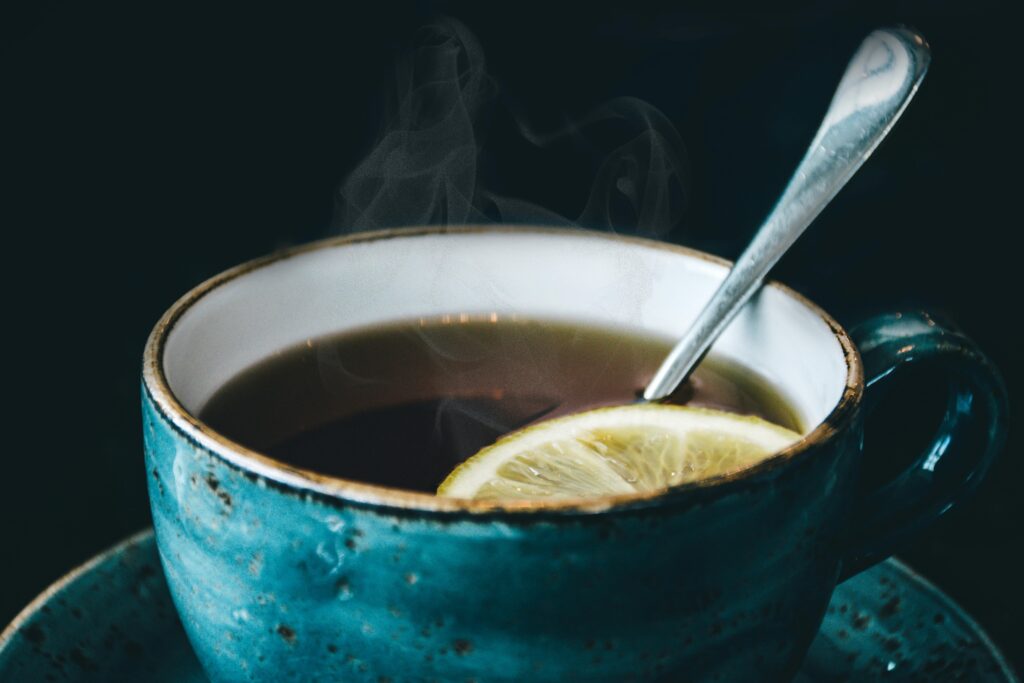
Fennel Tea – Light, Sweet, and Gentle on the Stomach
Fennel tea is mildly sweet with a hint of licorice. It’s my go-to when I feel bloated or uncomfortable after a heavy meal.
Health Benefits:
- Relieves gas and bloating
- Supports healthy digestion
- Balances female hormones
- May increase milk production in breastfeeding moms
- Eases PMS and menstrual cramps
How I Use It:
I prefer fennel tea after dinner or during my menstrual cycle. It works fast and tastes lovely.
Licorice Root Tea – Sweet, Soothing, and Healing
Licorice root tea is naturally sweet and deeply healing. I often reach for it when I feel a cold coming on or when I want to avoid sugar cravings.
Health Benefits:
- Soothes sore throat and cough
- Reduces sugar cravings
- Supports adrenal and hormone health
- Aids in acid reflux relief
- Fights viral infections
How I Use It:
I drink it during the afternoon as a healthier alternative to sweet snacks. It also helps soothe my throat if I’ve been talking a lot.

Rooibos Tea – A Caffeine-Free Source of Antioxidants
Rooibos tea is naturally caffeine-free and full of nutrients. It has a rich, earthy flavor and is suitable for drinking any time of the day.
Health Benefits:
- High in antioxidants that support skin and hair
- Strengthens bones and teeth
- Reduces allergy symptoms
- Supports heart health
- Balances blood sugar levels
How I Use It:
I drink rooibos tea before bed or when I want a caffeine-free beverage that still feels like a treat.
How I Brew My Herbal Teas
Making the perfect cup of herbal tea doesn’t require fancy equipment. Here’s how I prepare my teas at home:
Step-by-Step Guide:
- Boil water – Use freshly boiled water, usually around 1 cup.
- Add herbs – Use 1 to 2 teaspoons of loose herbs or one herbal tea bag.
- Steep properly – Cover and steep for 5 to 10 minutes. For stronger flavor, you can steep longer.
- Optional add-ins – Add honey, lemon, or cinnamon for extra benefits and flavor.
- Strain and sip – Strain the herbs and enjoy slowly while warm.
Herbal Tea Tips for Everyday Wellness
- Start small: Try one cup per day and notice how your body reacts.
- Stay hydrated: Herbal teas can contribute to your daily water intake.
- Rotate your blends: Switching up your herbal teas keeps things interesting and balanced.
- Avoid added sugars: Many store-bought blends have added sweeteners. Choose pure blends whenever possible.
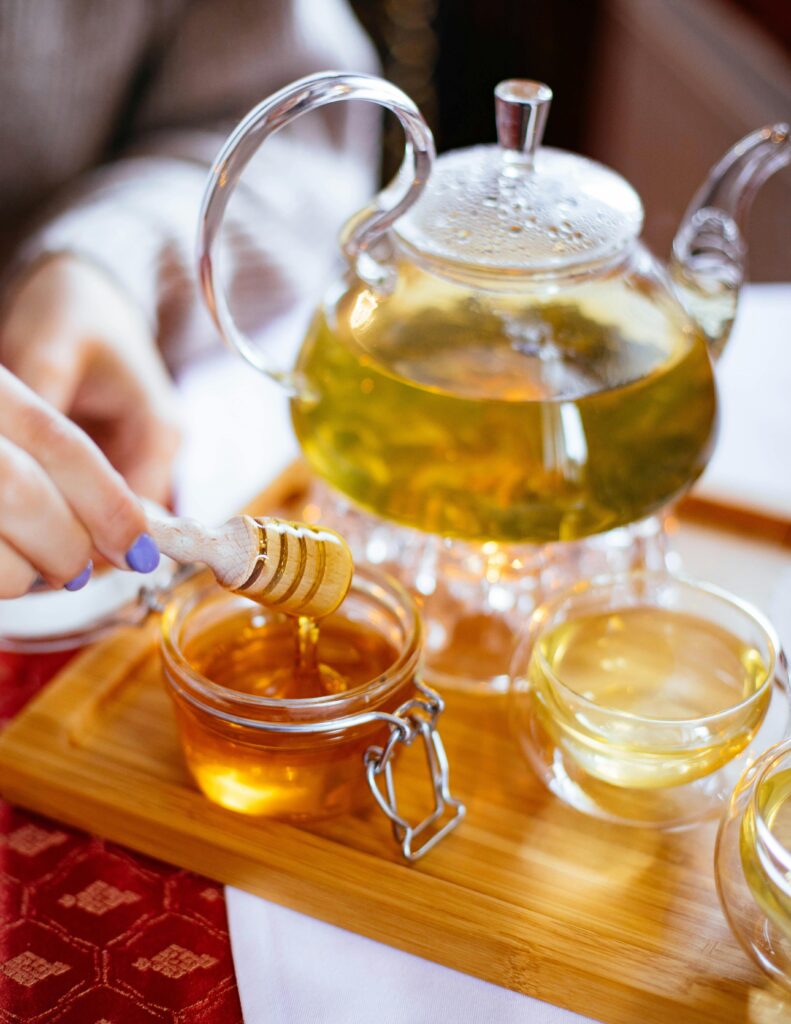
Frequently Asked Questions (FAQ)
Can I drink herbal teas every day?
Yes, most herbal teas are safe for daily use. However, moderation is key. It’s a good idea to rotate between different types to enjoy a wide range of benefits.
Are herbal teas safe during pregnancy or breastfeeding?
Some are safe, like ginger or fennel, but others should be avoided. Always consult with your healthcare provider before using any herbal tea during pregnancy or while breastfeeding.
Can children drink herbal tea?
Mild teas like chamomile or peppermint are generally safe for children in small amounts. It’s best to ask a pediatrician before introducing herbal teas to young kids.
What’s the best time to drink herbal tea?
It depends on the tea. Calming teas like chamomile are ideal before bed, while energizing ones like peppermint or green tea blends are better during the day.
Do herbal teas have caffeine?
Most herbal teas are caffeine-free. However, blends that include green or black tea will contain caffeine. Always read the label if you’re avoiding it.
Final Thoughts
Herbal teas are more than just warm, comforting beverages. They’re gentle allies for our body and mind. Whether you’re seeking better sleep, digestive relief, immunity support, or simply a moment of peace, there’s a herbal tea for every need. These teas have supported my lifestyle in a natural and nurturing way, and I encourage you to discover your favorites too.



